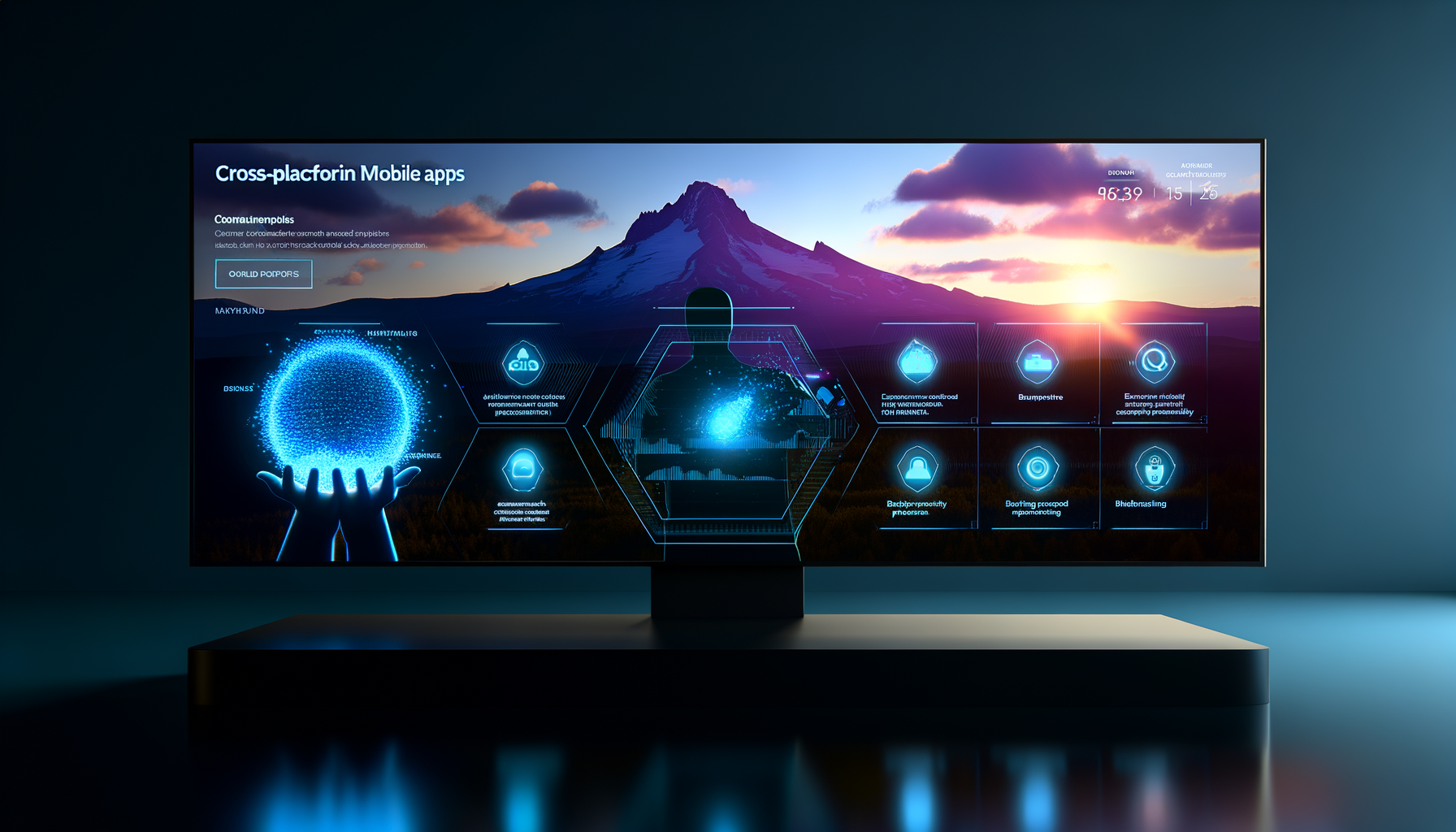In 2025, the choice isn't just about building an app—it's about building the right app. With mobile device usage continuing to skyrocket, organizations can no longer afford to overlook cross-platform mobile app development. Did you know that businesses using cross-platform solutions see a 30% reduction in development time? This post will explore the frameworks, AI integration, and strategies needed to optimize your mobile app strategy across iOS and Android, with practical insights guaranteed to future-proof your projects.
Understanding Cross-Platform Development
Why Choose Cross-Platform?

Tech team reviewing cross-platform code on dual monitors.
Cross-platform mobile app development allows you to maintain a single codebase for iOS and Android apps, significantly reducing costs and improving time-to-market. This approach not only ensures consistency across devices but also streamlines updates and maintenance.
The Pacific Northwest is a hub for tech-savvy businesses that recognize the necessity of efficient, scalable solutions. By leveraging cross-platform frameworks, organizations can reach a broader audience without doubling their workload.
Quicklook has pioneered seamless cross-platform solutions, helping companies unlock growth by deploying apps that deliver uniform experiences across all devices.
LIST
- •Cost-Effective
- •Consistent User Experience
- •Faster Development Cycle
Top Frameworks for 2025
Flutter vs. React Native

Comparison chart of Flutter and React Native features.
Flutter and React Native are frontrunners in cross-platform development, each offering unique benefits. Flutter, with its high performance and expressive UI, is favored for creating visually stunning applications. On the other hand, React Native, backed by Facebook, provides a robust ecosystem and easier integration with third-party plugins.
In 2025, we're seeing a rising trend in enterprises choosing Flutter for its capability to deliver near-native performance and React Native for its extensive community support and flexibility.
Whether it's leveraging Flutter's widget-based architecture or React Native's hot-reloading feature, Quicklook helps enterprises select and implement the best framework for their needs.
CALLOUT
Fun Fact: 40% of developers prefer Flutter for enterprise-grade apps due to its rapid prototyping abilities!
AI and Machine Learning in Mobile Apps
Enhancing App Intelligence

Diagram of AI components in a mobile app system.
Integrating AI and machine learning into mobile apps is no longer optional—it's a competitive necessity. AI-powered features such as personalized recommendations and predictive analytics not only enhance user engagement but also provide valuable insights for businesses.
Quicklook's AI integration expertise supports companies in embedding powerful machine learning algorithms that transform user experiences and drive engagement.
One of our clients, a fast-growing retail chain, increased app engagement by 60% within months of integrating AI-driven features—showcasing the transformative potential of intelligent apps.
QUOTE
AI isn't just about automating tasks; it's about creating smarter apps that anticipate and adapt to user needs.
The Role of PWAs
Progressive Web Apps in Cross-Platform Development

Flowchart of a Progressive Web App lifecycle.
Progressive Web Apps (PWAs) are bridging the gap between web and mobile apps, offering users a reliable, fast, and engaging experience without the need for app store downloads. They are particularly useful for businesses looking to maximize reach and minimize development efforts.
By harnessing the power of PWAs, businesses can deliver app-like experiences directly through the browser. This approach reduces friction and enhances accessibility, particularly in markets where high-speed internet isn't ubiquitous.
Companies in the Pacific Northwest are adopting PWAs as part of their digital strategy to maintain competitive edge and enhance user satisfaction effortlessly.
LIST
- •No Installation Required
- •Offline Capabilities
- •Improved Performance
5G and Future Trends
What's Next for Mobile Apps?

Graphic depicting 5G network boosting mobile app capabilities.
With the rollout of 5G, mobile app development is entering a new era of possibilities. The increased bandwidth and reduced latency enable developers to create richer, more responsive mobile experiences.
5G technology is particularly beneficial for cross-platform apps, allowing them to perform complex computations and deliver real-time data updates seamlessly.
Quicklook is at the forefront of embracing 5G advancements, helping businesses leverage these technologies to stay ahead in a rapidly changing digital landscape.
CALLOUT
5G isn't just faster—it's a catalyst for innovation, enabling unprecedented app functionalities.
Frequently Asked Questions
QWhat are the top cross-platform mobile app development frameworks in 2025?
QHow do AI and machine learning enhance cross-platform mobile apps?
QWhat role do Progressive Web Apps (PWAs) play in cross-platform development?
Conclusion
Cross-platform mobile apps are essential for future-proofing your digital strategy. By choosing the right frameworks and integrating AI, businesses can achieve scalable, engaging solutions.
Future Vision
Embrace these innovations to maintain your competitive edge in the ever-evolving mobile landscape.
Schedule your AI audit with Quicklook.
